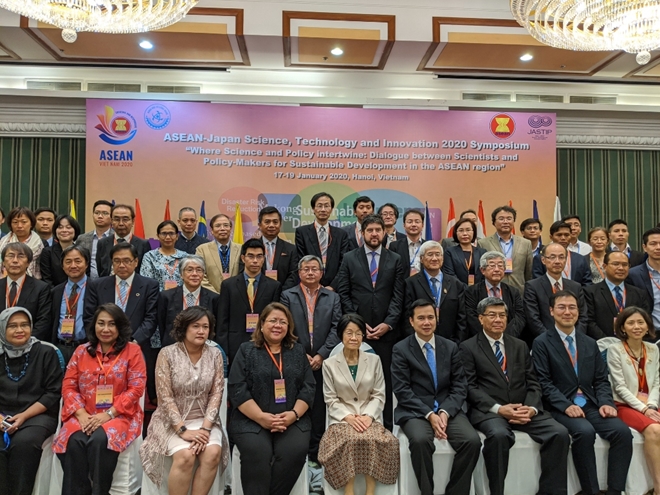Scholars seek way to enhance ASEAN-Japan collaboration
- ASEAN Chairmanship: For a cohesive and responsive ASEAN
- Traffic police deploy forces to ensure traffic safety for upcoming ASEAN Foreign Ministers' Retreat
 |
Named "Where Science and Policy intertwine: Dialogue between Scientists and Policy-Makers for Sustainable Development in the ASEAN region”, the event is jointly organized with ASEAN COSTI (ASEAN Commission of Science, Technology and Innovation).
It is supported by National Science and Technology Development Agency (NSTDA, Thailand), Indonesian Institute of Science (LIPI, Indonesia), Malaysia-Japan International Institute of Technology (MJIIT) as well as Japan Science and Technology Agency (JST) and Ministry of Education, Culture and Sports (MEXT) in order to contribute to Vietnam 2020 ASEAN Chairmanship Year.
Speaking at the opening ceremony, Dr. Bui The Duy, Deputy Minister of Science and Technology of Vietnam affirmed that, in ASEAN, development of science, technology and innovation has been defined as one of the top priorities, especially in the context of increasing integration and maintaining economic growth of the whole region.
He also so suggested participating delegates to discuss to identify core principles and share best practices, common to structures providing scientific advice for policy makers of ASEAN Member States, and seek practical ways to improve the interaction of the demand and supply side of scientific advice across multiple stakeholders as well.
The Symposium directly provides audience with insights on the needs and challenges of collaborations between scientists and policy makers so that scientific outputs could more contribute to solve societal challenges, to find the way forward how ASEAN and Japan will collaborate more closely and effectively to achieve the SDGs as a common agenda for both parties in this decade.
The event, which takes place from January 17 to 19, drew the participation of 200 delegates, including 80 international scholars and scientists.

